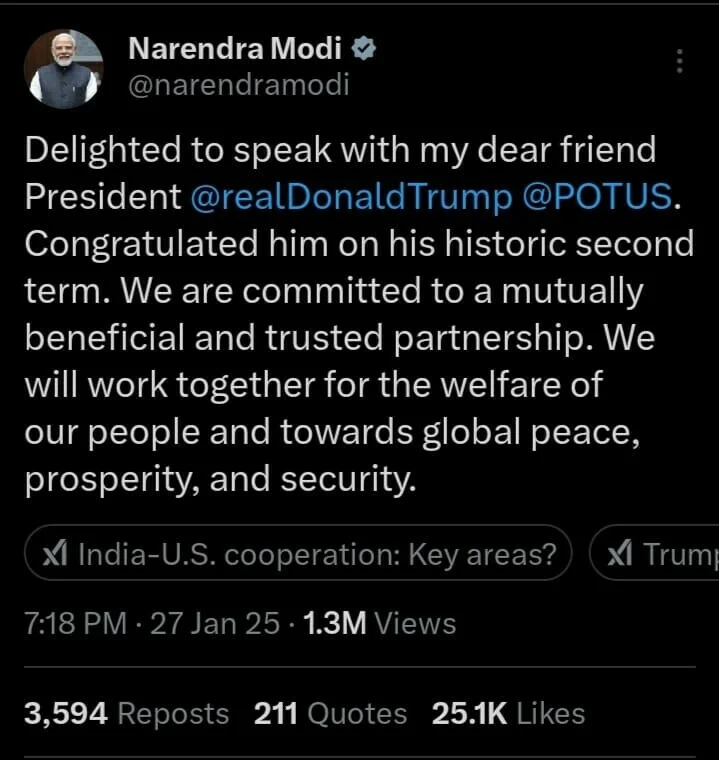Indian Prime Minister Narendra Modi and US President Donald Trump spoke in a phone call on Monday, Modi said in a post on X, the first conversation between the two leaders since Trump’s inauguration last week.
“We are committed to a mutually beneficial and trusted partnership,” Modi said in the post, adding that he also congratulated his “dear friend” on his historic second term in office. “We will work together for the welfare of our people and towards global peace, prosperity, and security,” he added.

Also See: Trump 2.0 and India-US Relations: What To Expect
Indian and US diplomats are trying to arrange a meeting of the two leaders as early as February, Reuters reported last week.
India, a strategic partner of the US in its efforts to counter China, is keen to enhance trade relations with the US and make it easier for its citizens to get skilled worker visas.
This news is sourced from The Express Tribune and is intended for informational purposes only.

![Indian PM Modi and US President Trump discuss strengthening ties, trade, and global peace in their first phone call post-inauguration. [Image via The Express Tribune]](https://southasiatimes.org/wp-content/uploads/2025/01/modi6-1498544871.webp)




![Ukrainian and Russian flags with soldier silhouettes representing ongoing conflict. [Image via Atlantic Council].](https://southasiatimes.org/wp-content/uploads/2026/02/2022-02-09T000000Z_1319661209_MT1NURPHO000HXCNME_RTRMADP_3_UKRAINE-CONFLICT-STOCK-PICTURES-scaled-e1661353077377.jpg)